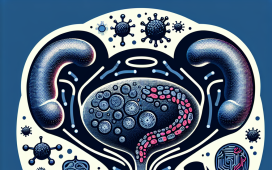Holistic healthcare is an approach to medicine that takes into account the physical, mental, emotional, and spiritual aspects of a person’s health. It seeks to treat the whole person, not just the symptoms of a disease.
Traditional medicine is the type of medicine that is most commonly practiced in the United States. It is based on the use of drugs and surgery to treat diseases.
Complementary therapies are treatments that are used in addition to traditional medicine. They are often used to relieve symptoms, improve quality of life, and promote overall health and well-being.
There are many different complementary therapies that can be used in conjunction with traditional medicine. Some of the most common include:
- Acupuncture: Acupuncture is a traditional Chinese medicine practice that involves inserting thin needles into the skin at specific points. It is thought to help to balance the body’s energy.
- Massage therapy: Massage therapy is a hands-on treatment that involves applying pressure to the muscles and soft tissues of the body. It is thought to help to relieve pain, improve circulation, and reduce stress.
- Yoga: Yoga is a mind-body practice that combines physical postures, breathing exercises, and meditation. It is thought to help to improve flexibility, strength, and balance.
- Meditation: Meditation is a mind-body practice that involves focusing the mind on a single point. It is thought to help to reduce stress, improve concentration, and promote relaxation.
- Herbal medicine: Herbal medicine is the use of plants and plant extracts to treat diseases. It is thought to help to relieve symptoms, improve overall health, and promote healing.
Holistic healthcare is becoming increasingly popular as people become more aware of the importance of taking a whole-body approach to health. When used in conjunction with traditional medicine, complementary therapies can help to improve the quality of life for people with a variety of health conditions.
The Benefits of Holistic Healthcare
There are many benefits to holistic healthcare, including:
- It takes a whole-body approach to health: Holistic healthcare considers the physical, mental, emotional, and spiritual aspects of a person’s health. This is in contrast to traditional medicine, which often focuses only on the physical symptoms of a disease.
- It can help to improve quality of life: Holistic healthcare can help to improve quality of life by relieving symptoms, reducing stress, and promoting relaxation.
- It can promote healing: Holistic healthcare can help to promote healing by supporting the body’s natural healing mechanisms.
- It is often less expensive than traditional medicine: Complementary therapies are often less expensive than traditional medicine, especially when they are used in conjunction with preventive care.
The Future of Holistic Healthcare
The future of holistic healthcare is very bright. As people become more aware of the importance of taking a whole-body approach to health, holistic healthcare is likely to become increasingly popular. This will lead to more research into complementary therapies and to the development of new and innovative treatments.
Holistic healthcare is a promising approach to medicine that has the potential to improve the quality of life for people with a variety of health conditions. As more research is conducted, we can expect to see even more benefits from holistic healthcare.








